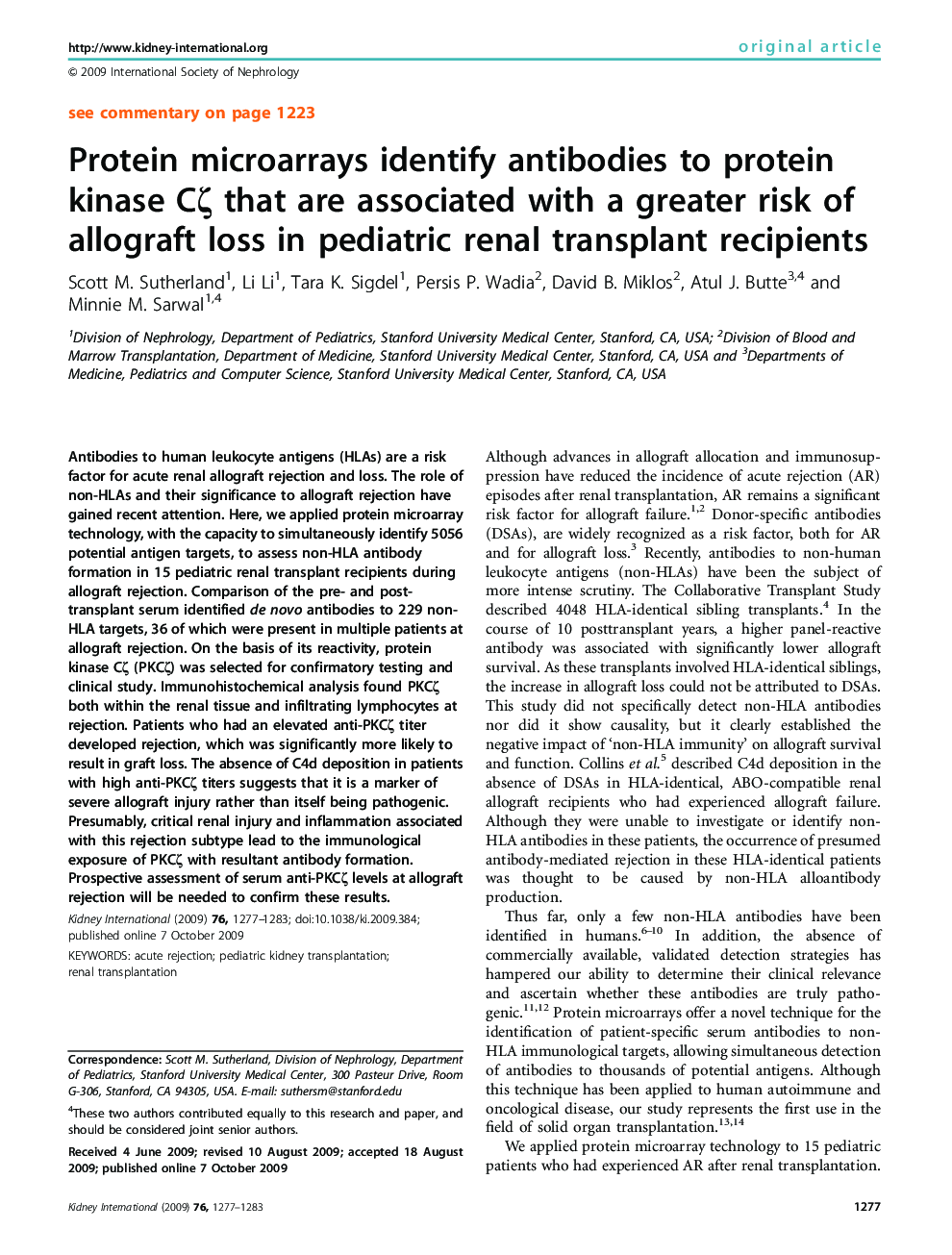| Article ID | Journal | Published Year | Pages | File Type |
|---|---|---|---|---|
| 3884118 | Kidney International | 2009 | 7 Pages |
Antibodies to human leukocyte antigens (HLAs) are a risk factor for acute renal allograft rejection and loss. The role of non-HLAs and their significance to allograft rejection have gained recent attention. Here, we applied protein microarray technology, with the capacity to simultaneously identify 5056 potential antigen targets, to assess non-HLA antibody formation in 15 pediatric renal transplant recipients during allograft rejection. Comparison of the pre- and post-transplant serum identified de novo antibodies to 229 non-HLA targets, 36 of which were present in multiple patients at allograft rejection. On the basis of its reactivity, protein kinase Cζ (PKCζ) was selected for confirmatory testing and clinical study. Immunohistochemical analysis found PKCζ both within the renal tissue and infiltrating lymphocytes at rejection. Patients who had an elevated anti-PKCζ titer developed rejection, which was significantly more likely to result in graft loss. The absence of C4d deposition in patients with high anti-PKCζ titers suggests that it is a marker of severe allograft injury rather than itself being pathogenic. Presumably, critical renal injury and inflammation associated with this rejection subtype lead to the immunological exposure of PKCζ with resultant antibody formation. Prospective assessment of serum anti-PKCζ levels at allograft rejection will be needed to confirm these results.
